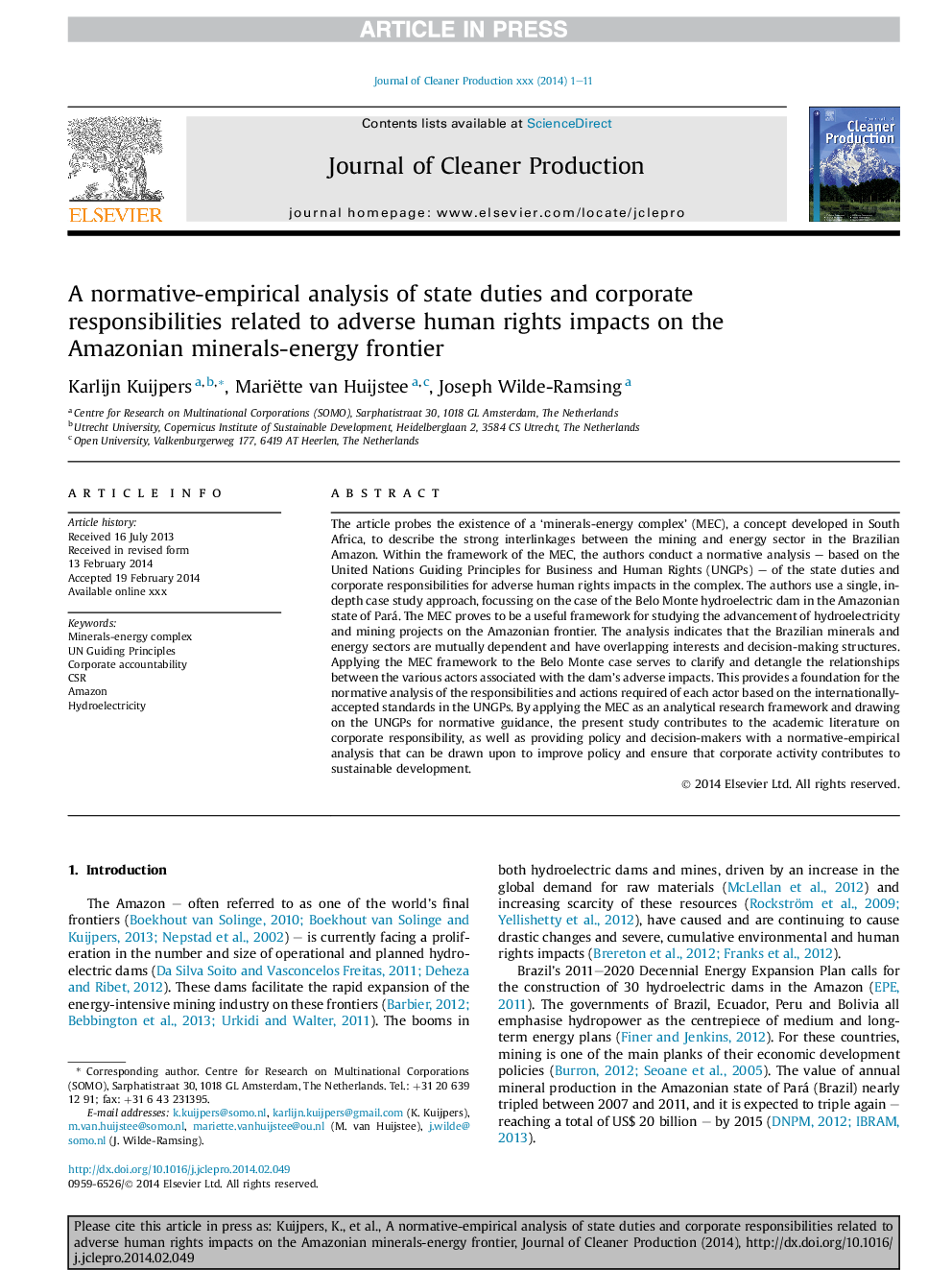| Article ID | Journal | Published Year | Pages | File Type |
|---|---|---|---|---|
| 8105958 | Journal of Cleaner Production | 2014 | 11 Pages |
Abstract
The article probes the existence of a 'minerals-energy complex' (MEC), a concept developed in South Africa, to describe the strong interlinkages between the mining and energy sector in the Brazilian Amazon. Within the framework of the MEC, the authors conduct a normative analysis - based on the United Nations Guiding Principles for Business and Human Rights (UNGPs) - of the state duties and corporate responsibilities for adverse human rights impacts in the complex. The authors use a single, in-depth case study approach, focussing on the case of the Belo Monte hydroelectric dam in the Amazonian state of Pará. The MEC proves to be a useful framework for studying the advancement of hydroelectricity and mining projects on the Amazonian frontier. The analysis indicates that the Brazilian minerals and energy sectors are mutually dependent and have overlapping interests and decision-making structures. Applying the MEC framework to the Belo Monte case serves to clarify and detangle the relationships between the various actors associated with the dam's adverse impacts. This provides a foundation for the normative analysis of the responsibilities and actions required of each actor based on the internationally-accepted standards in the UNGPs. By applying the MEC as an analytical research framework and drawing on the UNGPs for normative guidance, the present study contributes to the academic literature on corporate responsibility, as well as providing policy and decision-makers with a normative-empirical analysis that can be drawn upon to improve policy and ensure that corporate activity contributes to sustainable development.
Related Topics
Physical Sciences and Engineering
Energy
Renewable Energy, Sustainability and the Environment
Authors
Karlijn Kuijpers, Mariëtte van Huijstee, Joseph Wilde-Ramsing,
